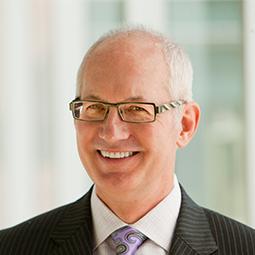
D. Brent Polk, a member of the USC Stem Cell executive committee and vice dean for clinical affairs at Children’s Hospital Los Angeles (CHLA), is among five USC scientists who have been elected fellows of the American Association for the Advancement of Science (AAAS), an honor bestowed upon AAAS members by their academic peers.
AAAS, the world’s largest general scientific society and publisher of the journal Science, began the AAAS Fellows tradition in 1874. The nonprofit organization was founded in 1848.
This year, 391 AAAS members will be made fellows because of their scientifically or socially distinguished efforts to advance science or its applications. The USC fellows are:
D. Brent Polk, a professor of pediatrics, biochemistry and molecular medicine at the Keck School of Medicine of USC, for distinguished contributions to the field of gastroenterology, particularly in understanding signal transduction mechanisms regulating intestinal growth and repair related to inflammatory bowel disease. Polk is also vice dean for clinical affairs at CHLA.
Wendy Cozen, a professor of preventive medicine and pathology at the Keck School, for contributions to the understanding of the epidemiology, etiology and immunology of Hodgkin’s disease and non-Hodgkin’s lymphoma. Cozen is also co-director of the Translational Pathology Core at the USC Norris Comprehensive Cancer Center.
Roger Ghanem, the Gordon S. Marshall Professor of Engineering Technology and a professor of civil and environmental engineering at the USC Viterbi School of Engineering, for outstanding contributions to practical, mathematical and computational aspects of uncertainty quantification. His research spans a wide spectrum of applications across science and engineering.
Robert Guralnick, a professor of mathematics at USC Dornsife College of Letters, Arts and Sciences, for being one of the central figures at the moment in the very broad domain of group theory.
Michael Paine, a professor and director of the master’s and doctorate program in craniofacial biology at the Herman Ostrow School of Dentistry of USC, for distinguished contributions to the field of biomineralization, for identifying protein-to-protein self assembly and for linking systemic disease of solute transport to enamel formation.
A steering group, three fellows or the association’s CEO nominates new fellows from among the organization’s membership pool. Fellows must have been continuous members of AAAS for four years.
